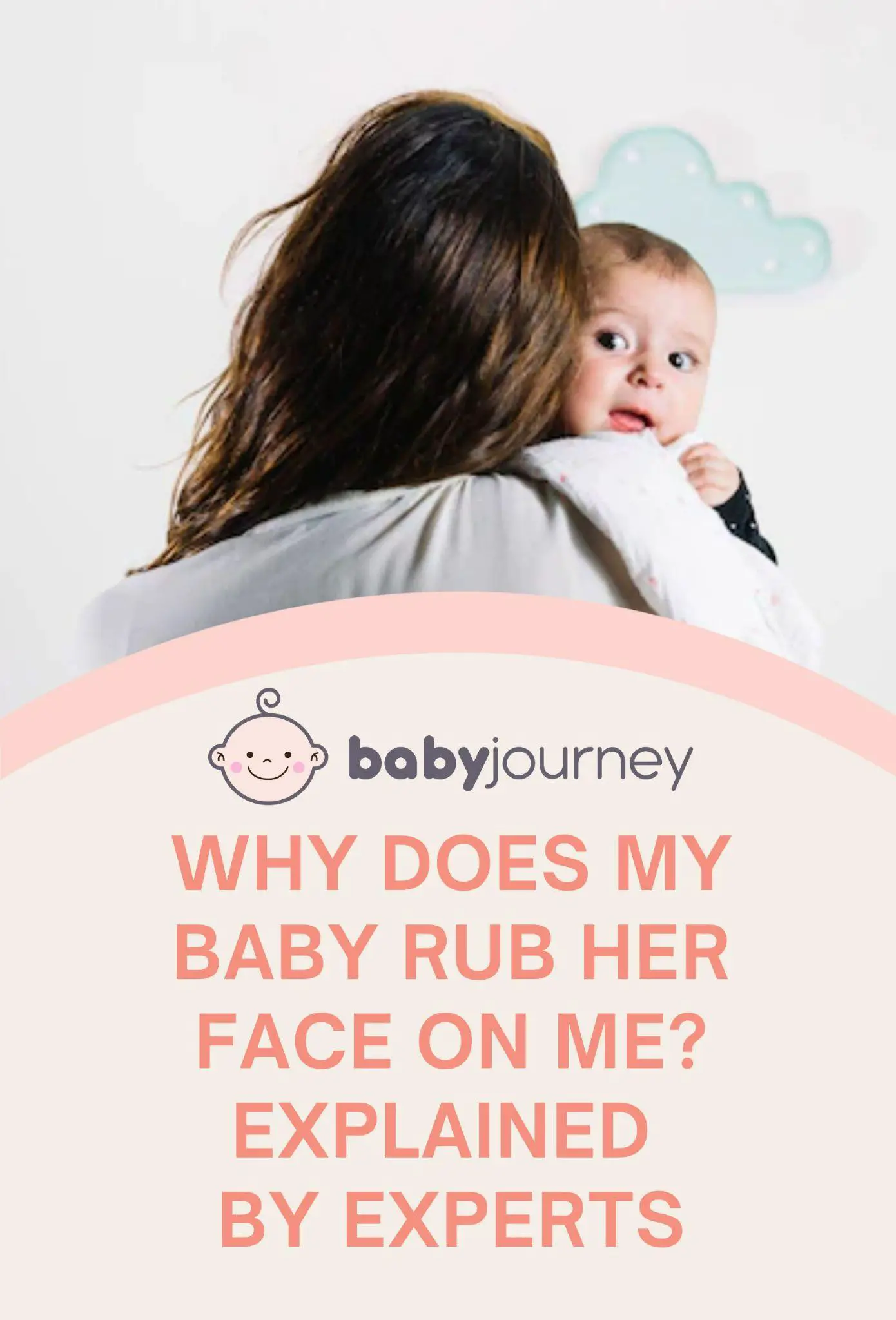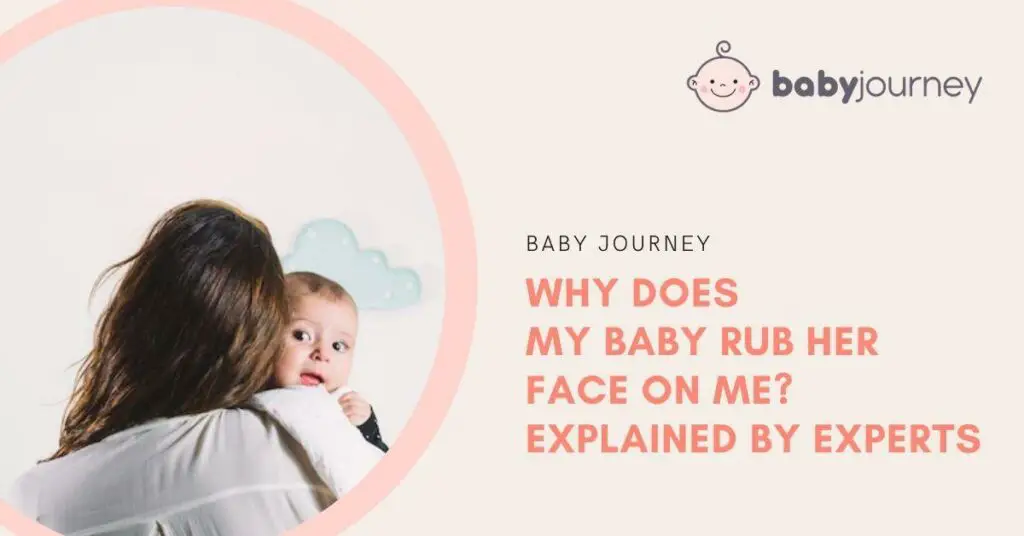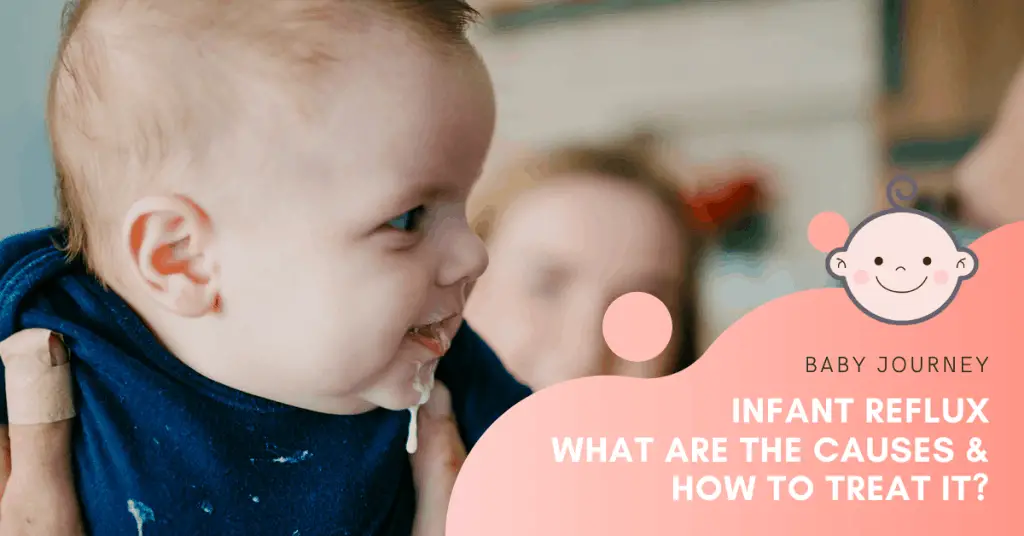Babies are known for their adorable and sometimes mysterious behaviors, and one of them is rubbing their faces on their parents or caretakers. This behavior can be both endearing and confusing for new parents – “Why does my baby rub her face on me?”. While it might seem like a simple act of affection, there are several reasons why babies rub their faces on their parents.
One of the most common reasons for baby rubbing is the rooting reflex. This is an involuntary motor reflex that newborns have, which helps them locate the nipple for feeding. By rubbing their faces on their parents, babies are trying to find the source of their food. However, this reflex can continue even after the baby has been fed, leading to face rubbing even when the baby is not hungry.
Another common reason for face rubbing is tiredness. When babies are tired, they may rub their faces on their parents as a way to soothe themselves and fall asleep. Baby rubbing can also indicate irritability or a desire to stay close to their parents. It is important to pay attention to other cues from the baby, such as rubbing their eyes or yawning, to determine if they are tired and need to sleep.
- Understanding Baby's Behavior
- The Rooting Reflex and Feeding
- Baby's Sleep and Tiredness
- Face Rubbing as a Sign of Discomfort
- Baby's Motor Skills and Coordination
- The Role of Smell in Baby's Behavior
- Safety Concerns and Precautions
- Soothing Techniques for Baby
- Other Possible Reasons for Face Rubbing
- Conclusion
- Frequently Asked Questions
Understanding Baby’s Behavior
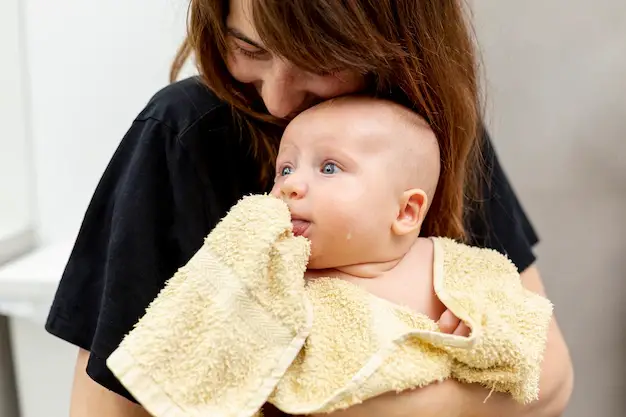
Babies are known for their odd behaviors, and one of them is rubbing their face on their parents or caregivers. While this behavior may seem strange, it is actually quite normal for young baby and can indicate a variety of things.
Rubbing behavior is considered a sensory-seeking behavior, which means that babies engage in it to stimulate their senses and explore their surroundings. Babies are born with a strong desire to seek out sensory experiences, and rubbing their face on their caregiver’s skin is one way they can do this.
In addition to being a sensory-seeking behavior, rubbing the baby’s face can also be a comfort mechanism. Babies seek comfort in a variety of ways, including snuggling, seeking physical contact, and expressing their emotions. Rubbing their face on their parent’s skin can be a way for babies to seek comfort and feel secure.
It is important to note that while rubbing behavior is normal, it can also be a sign of tiredness or irritability. If a baby is rubbing their face excessively, it may be a sign that they need some quiet time or a nap. Additionally, if a baby is rubbing their face aggressively, it may indicate discomfort or pain.
In general, parents and caregivers should not be concerned about a baby or young infant’s rubbing behavior, as it is a normal part of their development. However, if the behavior seems excessive or is accompanied by other odd behaviors, it may be worth consulting with a pediatrician to rule out any underlying medical issues.
Overall, understanding a baby’s behavior can help parents and caregivers provide the best possible care for their little ones. By recognizing the signs of normal behavior, odd behaviors, and sensory-seeking behaviors, parents can help their babies feel safe, secure, and loved.
The Rooting Reflex and Feeding
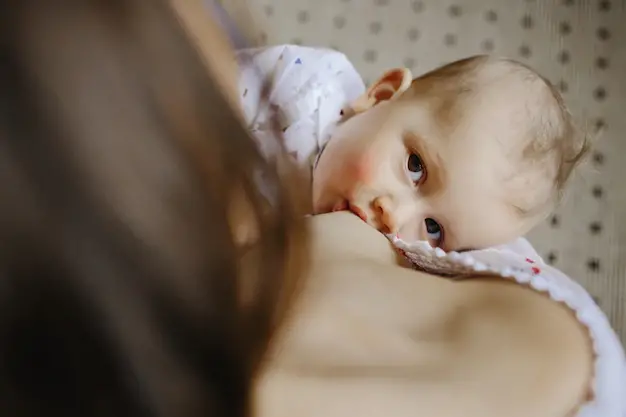
Babies have a natural instinct to move sweet head and search for their mother’s nipple when they are hungry. This instinct is known as the rooting reflex. The rooting reflex is an involuntary motor reflex that causes babies to turn their heads and open their mouths in search of the nipple. This reflex is present at birth and lasts for about 4-6 months.
When a baby rubs their face on their mother’s chest, it is likely a sign that they are hungry and looking for the nipple. The rubbing motion is a part of the rooting reflex, which helps the baby locate the nipple. As the baby rubs their face on their mother’s chest, they are able to smell the milk and find the nipple more easily.
Breastfeeding is the most common way to feed a baby, and it is recommended by healthcare professionals. Breast milk provides all the necessary nutrients for a baby’s growth and development. When a baby breastfeeds, they are able to regulate their intake and stop when they are full.
It is important for mothers to recognize the signs of hunger in their babies, such as the rooting reflex, and respond promptly by breastfeeding. Breastfeeding on demand is recommended, as it helps to establish a good milk supply and ensures that the baby is getting enough to eat.
In summary, the rooting reflex is an involuntary motor reflex that helps babies locate the nipple when they are hungry. Breastfeeding is the most common way to feed a baby, and it is important for mothers to recognize the signs of hunger and respond promptly by breastfeeding.
Baby’s Sleep and Tiredness
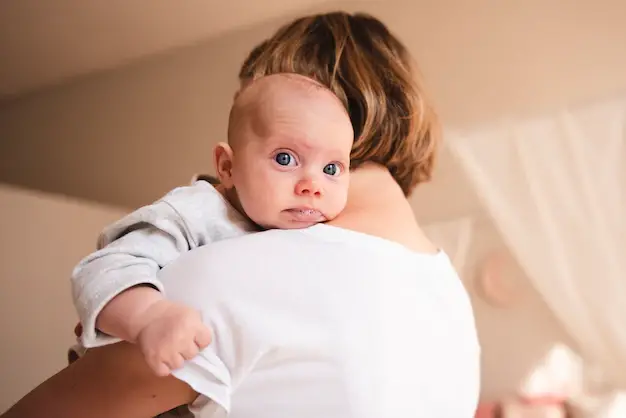
Babies tend to rub their faces when they are tired or sleepy. This is because they are trying to self-soothe themselves to sleep. Rubbing their face on a caregiver’s shoulder or chest can help them feel comforted and relaxed.
It is important to note that each baby has their own unique sleep pattern. Some babies sleep more than others, and some may need more naps throughout the day than others. It is recommended that parents pay attention to their baby’s sleep cues to determine when they are tired and need to rest.
If a baby is rubbing their face frequently, it may be a sign that they are overtired. This can make it difficult for them to fall asleep and stay asleep. It is important for parents to establish a consistent sleep routine to help their baby get the rest they need.
Parents can help their baby get ready for sleep by creating a calming environment, such as dimming the lights and playing soothing music. They can also try different techniques to help their baby self-soothe, such as swaddling, using a pacifier, or gently rubbing their back.
In summary, sleep and tiredness can play a significant role in why babies rub their faces on caregivers. It is important for parents to pay attention to their baby’s sleep cues and establish a consistent sleep routine to help their baby get the rest they need.
Face Rubbing as a Sign of Discomfort

Babies may rub their faces for various reasons, including general discomfort and. Face rubbing can indicate that the baby is experiencing an itch or general itchiness, which can be caused by various factors such as eczema, skin irritation, or allergies. If the baby is rubbing a specific area of their face, it could indicate an allergic reaction or an infection.
Eczema, also known as atopic eczema, is a common skin condition that can cause itching and redness. Babies with eczema may rub their faces to alleviate the itchiness. Skin irritation can also cause discomfort, leading to face rubbing.
Allergies can also cause face rubbing in babies. If the baby is allergic to something, such as a certain food or material, they may experience itchiness and discomfort, leading to face rubbing. It is essential to identify the allergen and avoid it to prevent further discomfort.
If the face rubbing is accompanied by other symptoms, such as a fever or excessive crying, it could indicate an infection. Infections such as ear infections or conjunctivitis can cause discomfort and itchiness, leading to face rubbing.
It is crucial to observe the baby’s behavior and identify any underlying causes of face rubbing. If the baby is experiencing discomfort, it is essential to address the underlying cause to alleviate their discomfort. If the face rubbing persists or is accompanied by other symptoms, it is recommended to consult a pediatrician to identify the cause and provide appropriate treatment.
Baby’s Motor Skills and Coordination
Babies develop their motor skills and coordination at different rates. However, there are certain milestones that most babies reach at certain ages. These milestones serve as building blocks for future skills.
From ages 4 to 6 months, most babies will become more aware of the world around them and want to explore. They will start to wiggle and kick their arms and legs more purposefully. They will also start to roll over and gain better head control as their muscles gain strength.
By 7 to 9 months, most babies will be able to sit up, stand, and laugh. They will become more mobile and curious, which means that infant development takes off. It might seem that your baby learns something new every day.
During this time, babies may also start to exhibit certain reflexes, such as the rooting reflex. Babies use this uncontrollable, primordial motor reaction to help them find a source of food. It causes them to rub their heads from side to side in search of it. This reflex occurs from newborn age and lasts about 4-6 months.
If you notice that your baby is not reaching these milestones or your older baby is experiencing delays in their motor skills and coordination, it might be time to consult with a doctor. While it is normal for babies to develop at different rates, it is important to ensure that they are on track with their development.
The Role of Smell in Baby’s Behavior
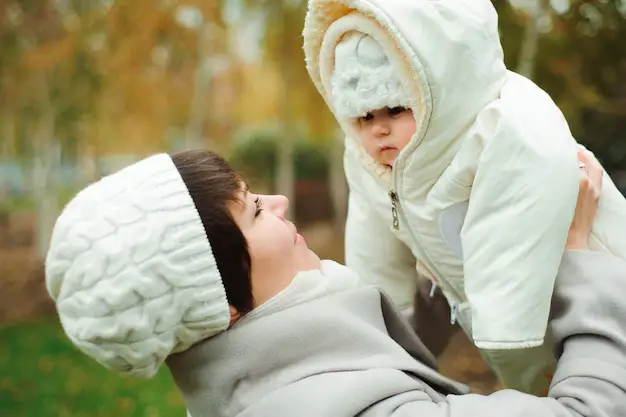
Babies are born with a well-developed sense of smell that plays a crucial role in their behavior. They use their sense of smell to identify their mother, recognize familiar scents, and even locate sources of food.
One of the ways that babies begin to use their sense of smell is through pheromone-like chemical signals. These signals are released by the mother’s body and help the baby to recognize her scent. Research has shown that babies are able to distinguish their mother’s scent from that of other women within just a few days of birth.
Another way that smell plays a role in a baby’s behavior is through amniotic fluid. As babies breathe and swallow the amniotic fluid in the womb, they become familiar with its scent. This familiarity with the scent of the amniotic fluid may help to calm and comfort babies after birth, as it is a familiar and comforting scent.
Babies also use their sense of smell to identify their offspring. This is particularly important for animals that have multiple offspring, as it helps to ensure that each baby receives the appropriate care and attention from the mother. In humans, this may manifest as a baby rubbing their face on their mother’s chest or clothing to get a better sense of her natural smell.
In conclusion, a baby’s sense of smell plays a crucial role in their behavior. From identifying their mother to recognizing familiar scents and locating sources of food, a baby’s sense of smell is a powerful tool that helps them navigate the world around them.
Safety Concerns and Precautions
When it comes to babies rubbing their faces on their caregivers, it is important to take some safety precautions to avoid any potential risks.
Accidental suffocation is a concern when co-sleeping with a baby. The American Academy of Pediatrics recommends that infants should sleep in a separate crib or bassinet in the same room as their parents for at least the first six months of life to reduce the risk of sudden infant death syndrome (SIDS) and other sleep-related deaths. Caregivers should avoid sleeping with their babies on a couch, armchair, or other soft surface as it increases the risk of accidental suffocation.
Pediatricians recommend that caregivers should always place their babies on their backs to sleep to reduce the risk of SIDS and other sleep-related deaths. Caregivers should avoid covering their babies’ faces with blankets or other objects that could cause suffocation.
When holding a baby who is rubbing their face, caregivers should ensure that the baby’s airway is clear and not obstructed by their clothing or other objects. Caregivers should also avoid holding their babies too tightly or in a way that could restrict their breathing.
In summary, caregivers should always prioritize safety when it comes to their babies. They should follow the recommendations of pediatricians and the American Academy of Pediatrics to reduce the risk of accidental suffocation and other sleep-related deaths. By taking these precautions, caregivers can ensure that their babies are safe and healthy while enjoying their time together.
Soothing Techniques for Baby
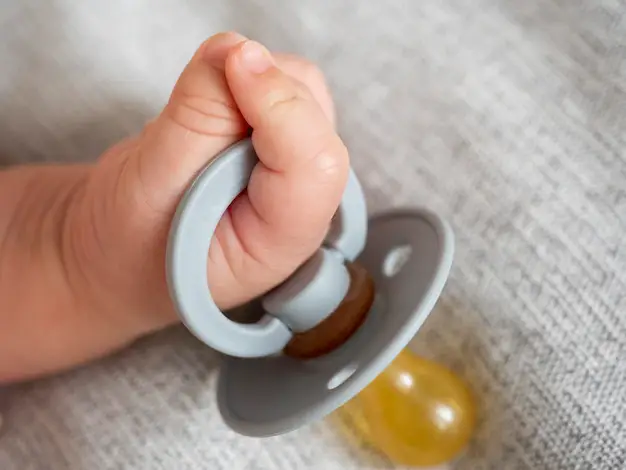
When a baby rubs their face on their caregiver, it could be a sign that they are tired or seeking comfort. Here are some soothing techniques that parents or caregivers can try:
Swaddling
Using the swaddling technique, a baby is wrapped tightly in a blanket to feel safe and secure. It can mimic the feeling of being in the womb and can be especially helpful for newborns. Ensure the swaddle is snug but not too tight, allowing your baby to move their hips and legs freely.
Pacifier
A pacifier can be a useful tool to help soothe a fussy baby. It can provide a sense of comfort and can satisfy their natural urge to suck. However, it is important to use a pacifier safely, and to avoid using it as a replacement for feeding.
Snuggles
Snuggling with a baby can be a great way to provide comfort and reassurance. Holding a baby close, rocking them gently, and singing or talking to them can all help to soothe a fussy baby.
Toys
Some babies may find comfort in a special toy or blanket. These comfort items can provide a sense of security and familiarity, and can be especially helpful when a baby is going through a transition, such as starting daycare or sleeping in a new environment.
Cream
If a baby is rubbing their face due to dry skin or eczema, a gentle cream or lotion can help to soothe and moisturize their sensitive skin more. Look for products that are specifically designed for babies and avoid using any products that contain harsh chemicals or fragrances.
Overall, there are many different techniques that parents or caregivers can try to help soothe a fussy or tired baby. It may take some trial and error to find out just what really works best for each individual baby, but with patience and persistence, most babies can be comforted and soothed.
Other Possible Reasons for Face Rubbing
While rooting reflex and hunger are the most common reasons for a baby to rub their face on their caregiver, there are other possible reasons for babies act on this behavior.
One possible reason is teething. Teething can be a painful experience for young babies too, and rubbing their face against a caregiver’s chest or shoulder can provide them with some relief. It is important to note that teething usually starts around six months of age, so if your baby is younger than that, it is less likely to be the cause of their face rubbing.
Another common reason babies rub themselves for face rubbing is crying. When a baby cries, they may rub their face to self-soothe. It is a natural instinct for babies to try to calm themselves down when they are upset, and rubbing their face against a caregiver’s chest or shoulder can provide them with comfort.
Gas and yawning are also possible reasons for face rubbing. Babies may rub their face when they are experiencing discomfort due to gas or when they are tired and need to yawn.
Fussing and mucus can also contribute to face rubbing. When a mom or baby is fussy or congested, they may rub their face to try to alleviate their discomfort.
Irritants such as perfume, lotion, or detergent can also cause a baby to rub their face. If you notice that your baby rubs their face only after being exposed to a certain scent or substance, it could be an irritant causing the behavior.
Separation anxiety is another possible reason for face rubbing. When a baby is separated from their caregiver, they may rub their or rubbing her face to try to comfort themselves and feel close to their caregiver.
Sensory seeking is also a possible reason for face rubbing. Some babies may rub their face against different textures or surfaces as a way to explore and experience different sensations.
Burping and explosive bowel movements can also cause a baby to rub their face. If a baby is uncomfortable due to gas or a bowel movement, they may rub their face as a way to distract themselves from the discomfort.
Overall, face rubbing is a common behavior in babies that can have a variety of possible causes. As a caregiver, it is important to pay attention to your baby’s cues and respond to their needs in a loving and supportive way.
Conclusion
In conclusion, babies rub their faces on their caregivers for several reasons. One of the main reasons is the rooting reflex, which is an involuntary motor reflex that enables babies to locate the nipple for feeding. This reflex is present from birth and can last up to six months of age.
Another reason why babies rub their ears and faces on their caregivers is to self-soothe. Babies may move their heads back and forth when trying to self-soothe. This action can be seen as a sign that the baby is learning to regulate their emotions and calm themselves down.
It is also possible that a baby may rub their face on their caregiver due to tiredness, irritability, or a desire to stay close to their caregiver. This behavior can be seen as a sign that the baby is seeking comfort and reassurance from their caregiver.
Parents and caregivers should pay attention to their baby’s cues and respond accordingly. If a baby is rubbing their face on their caregiver, it may be a sign that they need to be fed, soothed, or comforted. By responding to their baby’s needs, parents and caregivers can help promote a strong and healthy bond with their baby.
Overall, rubbing the face on a caregiver is a normal behavior in babies, and parents and caregivers should not be alarmed by it. By understanding the reasons behind this behavior, parents and caregivers can provide the best possible care for their baby and help promote a strong and healthy bond with their little one.
Frequently Asked Questions
Why do babies rub their face with hands?
Babies rub their face with hands for various reasons such as exploring their surroundings, self-soothing, and indicating tiredness. The rubbing of the face with hands is an involuntary reflex called the rooting reflex, which helps the baby find the nipple for feeding. As babies grow, they begin to explore the world around them and use their hands to touch and feel objects.
How to stop baby rubbing face at night?
To stop a baby from rubbing their face at night, parents can try swaddling the baby in a comfortable blanket to prevent them from moving their arms too much. Another option is to ensure the baby’s sleep environment is comfortable and free from irritants such as dust or pet dander. Parents can also try to establish a consistent bedtime routine to help the baby fall asleep more easily.
Why do babies shove their face into you?
Babies shove their face into their parents or caregivers as a way of seeking comfort and closeness. This behavior is often a sign that the baby wants to be held or cuddled. It can also be a way for the baby to indicate hunger or tiredness.
Why does my baby rub his head into me?
Babies may rub their head into their parents or caregivers as a way of seeking comfort and closeness. This behavior is often a sign that the baby wants to be held or cuddled. It can also be a way for the baby to indicate hunger or tiredness.
Why does my baby rub her face and head?
Babies may rub their face and head for various reasons such as self-soothing, exploring their surroundings, and indicating tiredness. The rubbing of the face and head is an involuntary reflex called the rooting reflex, which helps the baby find the nipple for feeding. As babies grow, they begin to explore the world around them and use their hands to touch and feel objects.
Why does my baby rub his head from side to side?
Babies may rub their head from side to side as a way of self-soothing or indicating tiredness. This behavior is often seen in babies who are trying to fall asleep or who are overtired. It can also be a sign of discomfort or pain, so parents should monitor their baby’s behavior closely to determine the cause.
